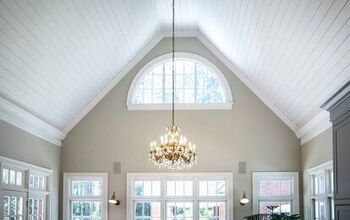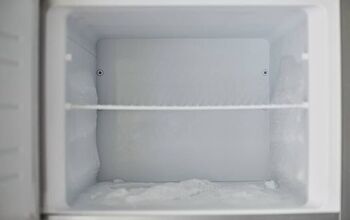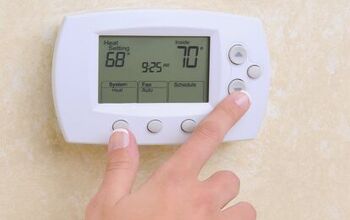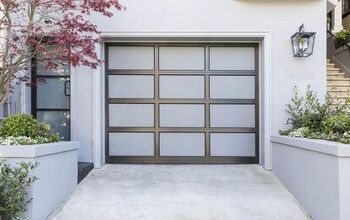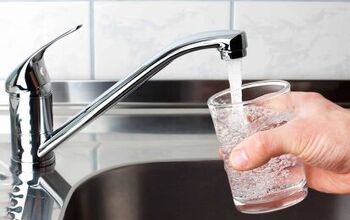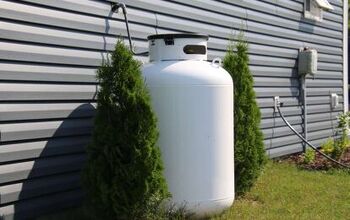Why Is My Basement So Humid?

Many people who live in muggy, humid climates look forward to getting home and avoiding more humidity. Returning home to a humid basement is equally frustrating and uncomfortable and homeowners may ask, why is my basement so humid?
A basement can become excessively humid due to foundation cracks caused by hydrostatic pressure. Outdated air conditioners cannot adequately remove moisture from the air, which also causes excessive basement humidity. Check your basement’s window wells for gaps and cracks that let water in if your basement is humid.
Your basement should have a humidity level between 30% and 50%. Otherwise, it may feel uncomfortable, and mold can grow. Follow along as we explore the main causes and solutions for a humid basement.
Seven Reasons Why Your Basement Is Humid
1. Air Leaks
Whether it be your basement or bedroom, indoor humidity is often due to air leaks. The difference in temperature between the indoor air and air coming from outside increases humidity. This can make your home uncomfortable and even strain your HVAC system.
You may notice water on the surfaces in your basement if you have an air leak. That’s because moisture can condense and settle on your walls, tables, and furniture. It’s worth quickly addressing air leaks to reduce humidity and save on energy bills.
For example, you can patch simple air leaks with foam insulation. However, major leaks require professional attention. Your HVAC system won’t have to work as hard if you patch air leaks, and that saves money.
2. Structural Damage
Minor air leaks are easy to fix, but structural damage can make your basement humidity problem hard to remedy. For example, moisture can seep into your basement through cracks in the foundation. This often happens because of hydrostatic pressure from groundwater surrounding the foundation.
Moisture can also seep into your home’s foundation because of soil expansion. In some cases, this happens because of clogged gutters that leak water into the foundation. Otherwise, it can occur if your gutter system’s downspout is too close to your house.
Contact a landscaper to regrade your yard and protect the foundation of your home from groundwater. It’s also important to seal the foundation and patch cracks as needed.
3. Outdated Air Conditioner
Air conditioners reduce humidity in homes, but only if they’re in great shape. Old and outdated ACs cannot perform well or adequately reduce humidity in your house. You can tell that something is wrong with your AC if it runs in short cycles and your house is still humid.
It could be something as simple as a dirty air filter, which is easy to fix. Replace your air filter every 3 months or as needed to keep your AC in great shape. However, this won’t do much to fix the problem if your AC is nearly 15 years old or older.
An air conditioner typically only lasts 15 to 20 years, and it gradually works less efficiently with time. It’s worth replacing your outdated unit if it doesn’t run well and your basement is always humid.
4. Poor Bathroom Ventilation
Do you have a full bathroom with a shower in your basement? If so, that could explain your humidity problem if the bathroom isn’t properly ventilated. For example, taking a hot shower without a fan running can cause excessive humidity to accumulate in your basement.
Proper ventilation essential for moisture control, and it helps prevent mold and mildew in your bathroom. Always run your fan when you take a shower to prevent excessive moisture. Ideally, you should run the fan for at least 10 minutes after your shower.
It’s worth cracking a window open while you shower if you don’t have a fan in your bathroom. You can expect to spend $800 to $1,500 to install a bathroom ventilation fan, but it varies. Otherwise, you can spend as little as $200 to install a bathroom fan without professional help.
5. Indoor Plants
While indoor plants may not directly make your basement humid, the way you care for them may. For example, many indoor plant enthusiasts run humidifiers to nurture their indoor gardens. Many people set the humidity level in their house to 60% if they have indoor plants.
However, anything over 50% is typically considered too humid for a house, especially a basement. Watering your plants can also temporarily increase the humidity level in your home. Luckily, those effects go away quickly, but the effects of humidifiers are long-lasting.
Stop using a humidifier and see if the level of humidity in your basement improves. Otherwise, you may simply need to run a dehumidifier until the humidity level goes down to between 30% to 50%.
6. Excessive Irrigation
Irrigation systems are useful for maintaining healthy lawns and gardens. However, the water often winds up in spaces where it goes to waste, and plants can’t absorb it. When that happens, the water can get into your foundation or your basement walls.
That doesn’t necessarily mean that you must get rid of your irrigation system. Instead, it’s worth adjusting the system so that the water doesn’t go near your home. Instead, the sprinklers should be directed at flower beds and plants that are at least 3’ to 4’ away from your house.
Any closer, and you risk damaging the walls and foundation of your basement. Alternatively, if you have the time, you can forego an irrigation system altogether and water your plants by hand.
7. Bad Window Wells
Window wells work wonders to keep water out of your home and basement. However, they are prone to problems over time and can eventually have the opposite effect. That’s especially true if they were installed poorly or shifted over the years.
In that case, water can work its way into your basement or get stuck in the wall. You may not see it right away, but the water will eventually increase the humidity level in your house. This can create the perfect conditions for mold to grow and spread quickly.
Drain tile extensions and aggregate can help prevent water from entering your basement through window wells. Keep in mind that it’s a big job, so it’s worth hiring professionals to fix your window wells.
Is 70% Humidity Too High For A Basement?
Yes, 70% humidity is significantly too high for a basement. Your basement should only have a humidity level of between 30% to 50%. Otherwise, moisture may condense on your windows, walls, furniture, and decorations, eventually causing mold to grow.
Summing It Up
Your basement may be humid because of air leaks in your windows, window wells, and exterior walls. Water can also seep into your basement walls and foundation because of hydrostatic pressure and soil in the groundwater. Poor bathroom ventilation and an outdated air conditioner can also lead to excessive humidity in a basement.
Related Guides:

Nick Durante is a professional writer with a primary focus on home improvement. When he is not writing about home improvement or taking on projects around the house, he likes to read and create art. He is always looking towards the newest trends in home improvement.
More by Nick Durante










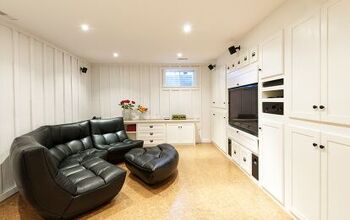




![Cost To Drill A Well [Pricing Per Foot & Cost By State]](https://cdn-fastly.upgradedhome.com/media/2023/07/31/9074980/cost-to-drill-a-well-pricing-per-foot-cost-by-state.jpg?size=350x220)


